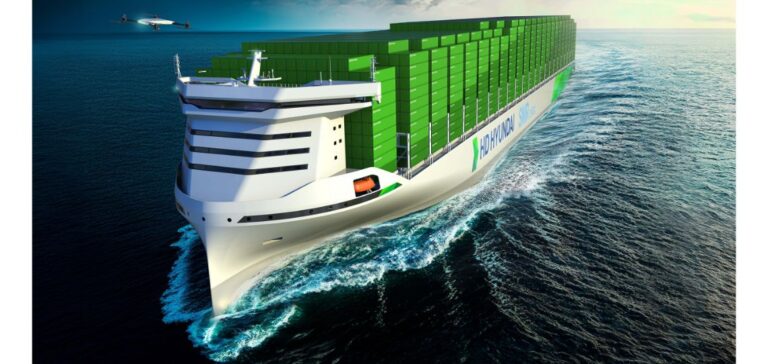HD Korea Shipbuilding & Offshore Engineering (HD KSOE) recently unveiled its nuclear-powered container ship model, powered by a Small Modular Reactor (SMR), at the New Nuclear for Maritime Summit in Houston, USA. This innovative model aims to enhance energy efficiency and safety for ships while addressing the carbon neutrality imperatives in the maritime sector. The model was approved by the American Bureau of Shipping (ABS) with an “Approval in Principle” (AIP), validating the design of a 15,000 TEU-class container ship utilizing this technology.
Optimization of Space and Economic Efficiency
One of the main advantages of this technology lies in the optimization of the ship’s space. Unlike conventional ships, which require exhaust systems for engines and fuel tanks, nuclear-powered vessels do not need these components. The space freed up by the absence of engine room equipment allows for additional containers, thereby improving the economic efficiency of the ship. The unveiled model also integrates a marine radiation shielding system using a double-tank method with stainless steel and light water, ensuring operational safety.
Innovation in Propulsion and Performance
A collaboration with global energy technology company Baker Hughes has enabled the integration of a supercritical carbon dioxide-based propulsion system, which improves thermal efficiency by nearly 5% compared to existing steam-based propulsion systems. This propulsion technology represents a significant step forward in maritime propulsion, enabling higher energy efficiency even at relatively low temperatures and pressures.
Progress Towards Commercialization and Future Development
HD KSOE continues its efforts to demonstrate the viability of this technology by establishing a future technology test center in Yongin, South Korea. This center will serve to validate safety designs, a crucial element for the large-scale adoption of nuclear-powered ships. In this regard, the company is also collaborating with international regulatory bodies to establish the necessary standards for the commercialization of nuclear-powered vessels. The company plans to establish a business model for marine nuclear technology by 2030, with a parallel SMR land-based reactor production project, in collaboration with TerraPower.
A New Era for the Maritime Sector
The progress made by HD KSOE signals a new era for the maritime industry, where nuclear-powered ships could play a key role in reducing carbon emissions and optimizing operational costs in an increasingly decarbonizing maritime market.






















